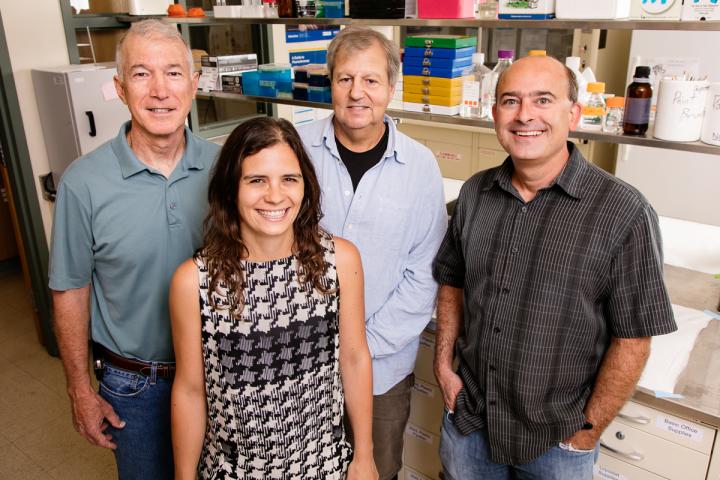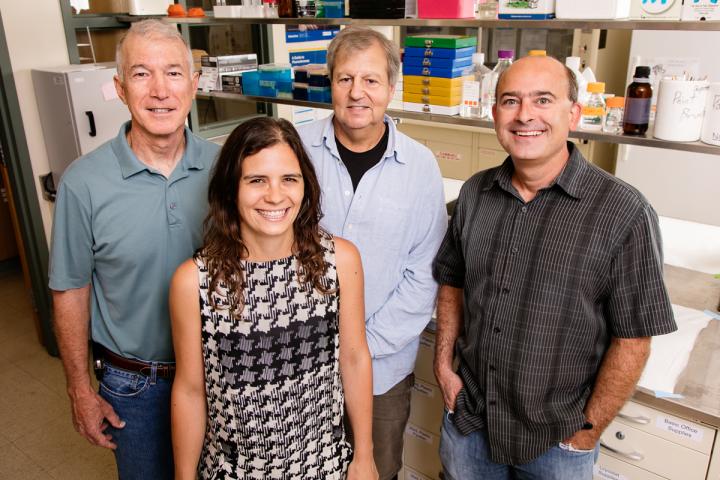
CHAMPAIGN, Ill. — Women undergoing chemotherapy for breast cancer have long complained of lingering cognitive impairments after treatment. These effects are referred to as “chemobrain,” a feeling of mental fogginess. A new study from the University of Illinois reports long-lasting cognitive impairments in mice when they are administered a chemotherapy regimen used to treat breast cancer in humans.
The results are published in the journal Behavioural Brain Research.
“Cancer survival rates have increased substantially and continue to improve due to both earlier detection and better medical treatments,” said Catarina Rendeiro, a postdoctoral scholar at the Beckman Institute for Advanced Science and Technology. The study’s lead author, Rendeiro collaborated with an interdisciplinary group at Illinois, including Justin Rhodes, a professor of psychology and a Beckman Institute affiliate; and William Helferich, a professor of nutrition in the department of food science and human nutrition.
“Quality of life after chemotherapy is critically important, and chemobrain is significant in these survivors,” Helferich said.
Patient complaints and clinical observations after chemotherapy spurred an interest in chemobrain. While many researchers have examined these effects in humans as well as animals, most such studies do not assess long-term effects. The physical toll of chemotherapy is great and accounts for the short-term cognitive impairments, Rhodes said.
“The question is, after they completely recover from the acute assault of chemotherapy, many months or years later, do they still have cognitive impairments?” he said.
Drugs can be developed to address these cognitive impairments, but side effects and negative interactions of these drugs with the chemotherapy medications could cause patients to suffer even more, Rhodes said. The researchers hope to find nonpharmaceutical interventions that are widely available and have fewer complications.
“A dietary intervention that could improve cognitive function after chemotherapy could benefit a lot of cancer patients,” Rendeiro said.
The researchers used female mice bred to mimic post-menopausal women, the group most affected by breast cancer.
“We wanted a model that represents the human population so we have the best chance of having results that translate to humans,” Rhodes said.
The team’s first goal was to confirm that chemobrain was a long-lasting phenomenon. They assessed the long-term effects of chemotherapy on learning and memory, as well as the formation of new neurons in the hippocampus, a brain region known to contribute to those abilities.
“We need to have good animal models of these long-term cognitive problems following chemotherapy to understand what is going on and how to treat it,” Rendeiro said.
The researchers tested learning and memory using the Morris Water Maze, which trains mice to find a hidden platform in a maze. The mice that had received the chemotherapy regimen took longer to find the platform and were slower to learn the task compared with the control group. The chemotherapy group also had 26 percent fewer surviving hippocampal neurons born during the chemotherapy treatment and generated 14 percent fewer hippocampal neurons in the three months following chemotherapy. Three months for a mouse corresponds to about ten human years, Rhodes said. Together, these results show long-term detriments to both the brain and behavior of the chemotherapy-treated mice.
The researchers also were interested in the efficacy of a diet enhanced with omega-3 fatty acids in reversing these cognitive impairments. However, they found no beneficial effect of the supplemented diet on mitigating chemotherapy-induced cognitive impairments.
This study provides one of the first animal models to demonstrate the long-term cognitive deficits resulting from a chemotherapeutic treatment used in treating humans for breast cancer. Although the omega-3 diet did not improve cognitive outcomes in the mice, the researchers expect their model will be useful for studying alternative lifestyle interventions to ameliorate the chemobrain phenomenon.
###
This research was funded by private grants from the U. of I. Center for Nutrition, Learning and Memory.
Editor’s notes:
To reach Catarina Rendeiro, email [email protected].
To reach Justin Rhodes, call 217-265-0021; email [email protected].
To reach William Helferich, call 217-244-5414; email [email protected].
The paper “Long-lasting impairments in adult neurogenesis, spatial learning and memory from a standard chemotherapy regimen used to treat breast cancer” is available online and from the News Bureau.
Media Contact
Sarah Banducci
[email protected]
217-333-5802
@NewsAtIllinois
http://www.illinois.edu
The post Study confirms long-term effects of ‘chemobrain’ in mice appeared first on Scienmag.





